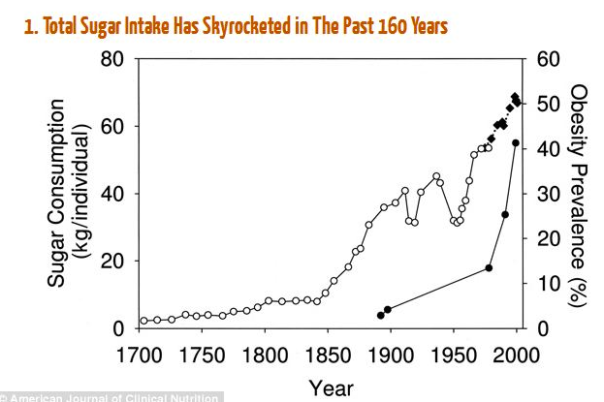- Messages
- 21,889
- Type of diabetes
- Type 2
- Treatment type
- Diet only
We all know that sugar intake has risen, don't we?
It is in the media every day. Vaguely linked to processed foods and our own implied greed.
Well I decided to find out by how much.
And I came across these two fascinating webpages.
The first shows how sugar intake rose, particularly in Britain, as a result of the slave trade and increased availability.
The contrast between the amount of sugar eaten per person in the last 300 years, is frankly shocking.
https://chocolateclass.wordpress.co...itish-sugar-consumption-and-potential-causes/
The site is mainly focused on chocolate, and the sugar info is a kind of additional extra:
There is no doubt that since 1704, when sugar consumption in Britain was only 4 pounds per person, its consumption has skyrocketed to well over 150 pounds per person, per year.

As a comparison, the following link takes you to the European Association of Sugar Manufacturers own website,
https://cefs.org/blog/2014/05/01/th...out-sugar-consumption-its-not-what-you-think/
and shows a v similar chart on sugar consumption, but a completely different interpretation.
This time they conveniently ignore the 140 years before 1840.
In their own words:
Conclusion
Source: Czarnikow, F O Licht, ISO, Board of Trade Journal

Amazing how much spin can be put on information, isn't it?
It is in the media every day. Vaguely linked to processed foods and our own implied greed.
Well I decided to find out by how much.
And I came across these two fascinating webpages.
The first shows how sugar intake rose, particularly in Britain, as a result of the slave trade and increased availability.
The contrast between the amount of sugar eaten per person in the last 300 years, is frankly shocking.
https://chocolateclass.wordpress.co...itish-sugar-consumption-and-potential-causes/
The site is mainly focused on chocolate, and the sugar info is a kind of additional extra:
There is no doubt that since 1704, when sugar consumption in Britain was only 4 pounds per person, its consumption has skyrocketed to well over 150 pounds per person, per year.

As a comparison, the following link takes you to the European Association of Sugar Manufacturers own website,
https://cefs.org/blog/2014/05/01/th...out-sugar-consumption-its-not-what-you-think/
and shows a v similar chart on sugar consumption, but a completely different interpretation.
This time they conveniently ignore the 140 years before 1840.
In their own words:
Conclusion
- The rise in obesity is a problem for the world today. However, this is not due to rising sugar consumption.
- Data shows how we as consumers in the developed world are actually consuming less sugar than before.
- Behaviour has changed and the amount of sugar that we buy for domestic use today is just 30% of that of our grandparents’ generation.
- We are consuming more sugar indirectly but this reflects the food that we can buy today and we are consuming more food overall.
- Our lives are better but we are working more, are more exposed to stress and on average are doing less exercise.
Source: Czarnikow, F O Licht, ISO, Board of Trade Journal

Amazing how much spin can be put on information, isn't it?

